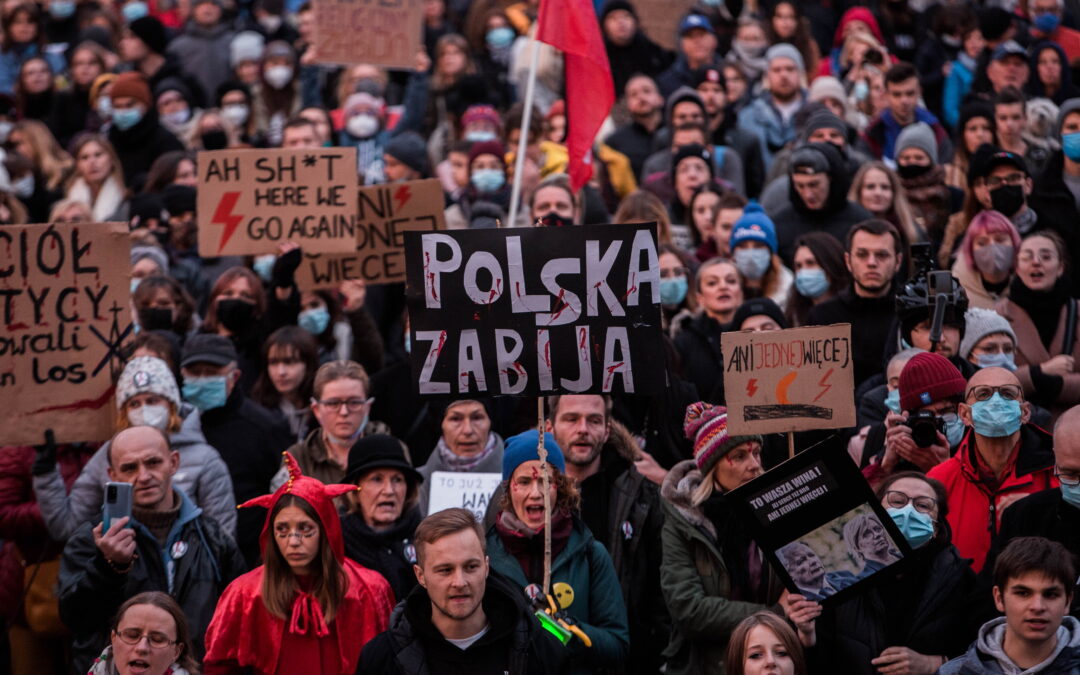The Dutch government will pay for women from Poland to obtain abortions in the Netherlands. Its decision follows the introduction of a near-total ban on abortion in Poland and was prompted in particular by the recent death of a pregnant woman in hospital, which many have blamed on the abortion law.
Yesterday, the Dutch parliament adopted a resolution approving the use of state funds to help Polish women obtain abortions, reports Deutsche Welle. The measure was approved by an overwhelming majority of 111 out of the chamber’s 150 members.
Its decision follows a similar move in September by Belgium, whose government agreed to provide funding for women in Poland to obtain terminations abroad, as a growing number have done since the near-total abortion ban was introduced.
In the case of the Netherlands, the money will come from a fund already used to support vulnerable groups abroad, including providing women with access to safe abortion procedures.
Previously, it was used only for women from “third world countries”, not for those from Europe, said the resolution’s author, Sjoerd Sjoerdsma of the liberal D66 party.
“However, recent events in Poland and the fact that a woman died because she did not receive the right to a safe abortion meant that we decided to allocate part of the funds to help Polish women who want to have an abortion in the Netherlands,” he explained.
"Thanks to the abortion law, there's nothing they can do," a woman texted her mother shortly before she died in hospital after doctors waited for the death of her foetus, which had birth defects.
Many blame her death on Poland’s near-total abortion ban https://t.co/5hQss5UVTI
— Notes from Poland 🇵🇱 (@notesfrompoland) November 4, 2021
“Freedom in some parts of Europe is under severe pressure from repressive legislation,” read the resolution he authored. It has been published in Polish as well as Dutch because “we wanted our message to reach Polish women”, said Sjoerdsma.
In September, a 30-year-old woman, named only as Izabela, died in a Polish hospital following a decision by doctors to wait for her foetus to die before removing it. She was survived by a husband and young daughter.
Many – including Izabela’s family – have blamed her death on the abortion law. However, conservative commentators and politicians, including from Poland’s ruling camp, have rejected such suggestions. They note that the law allowed doctors to terminate a pregnancy if it threatens the mother’s life or health.
The Dutch government has already given approval to the idea of financing abortions for women from Poland, reports Deutsche Welle. Details – such as how much money will be provided and whether it will fully or only partially subsidise terminations – will be finalised in the next two to three weeks.
Abortion in the Netherlands is permitted on demand up to the 22nd week of pregnancy (or up to 24 weeks for medical reasons). While procedures are free for residents of the country, people from elsewhere must pay, with costs ranging between €480 and €930, notes Sjoerdsma.
“Such sums are quite a lot, which is why we want to help pay for the treatments, so that Polish women know that they are safe in the Netherlands and do not have to worry about finances,” he added.
Until last year, Poland already had one of Europe’s toughest abortion laws, with terminations only permitted if the pregnancy resulted from rape or incest, if it threatened the mother’s life or health, or if the foetus was diagnosed with a severe birth defect.
In an October 2020 ruling, the Constitutional Tribunal – a body widely seen as being under the influence of the ruling party – found that abortions due to birth defects (which made up over 90% of legal terminations in Poland) are unconstitutional.
Since then, the number of legal abortions taking place in Poland has fallen significantly, while evidence indicates that increased numbers of women are travelling abroad to obtain terminations.
The ruling also prompted the largest protests in Poland’s post-communist history, with demonstrators criticising the tribunal, the government and the Catholic church, which supported the ban. Polls show that a large majority of the public want the abortion law to be liberalised.
Update (26.11.2021, 19:30): in a statement to Notes from Poland, the Embassy of the Netherlands in Warsaw wrote:
Women’s rights, gender equality and reproductive rights and health are long-standing Netherlands priorities. Also in our foreign policy. This was again confirmed during the annual budget debate in parliament with our Minister of Foreign Affairs. A majority in parliament adopted a motion pressing the government to use an existing human rights program in such a way that it would be possible to use the funds to support LGBTI and woman’s rights, including access to safe abortion, in Europe. This human rights fund can only be used to financially support organizations, not individuals. And currently we are looking into the possibilities how to carry out this motion.
Main image credit: Adrianna Bochenek/Agencja Wyborcza.pl

Daniel Tilles is editor-in-chief of Notes from Poland. He has written on Polish affairs for a wide range of publications, including Foreign Policy, POLITICO Europe, EUobserver and Dziennik Gazeta Prawna.



















